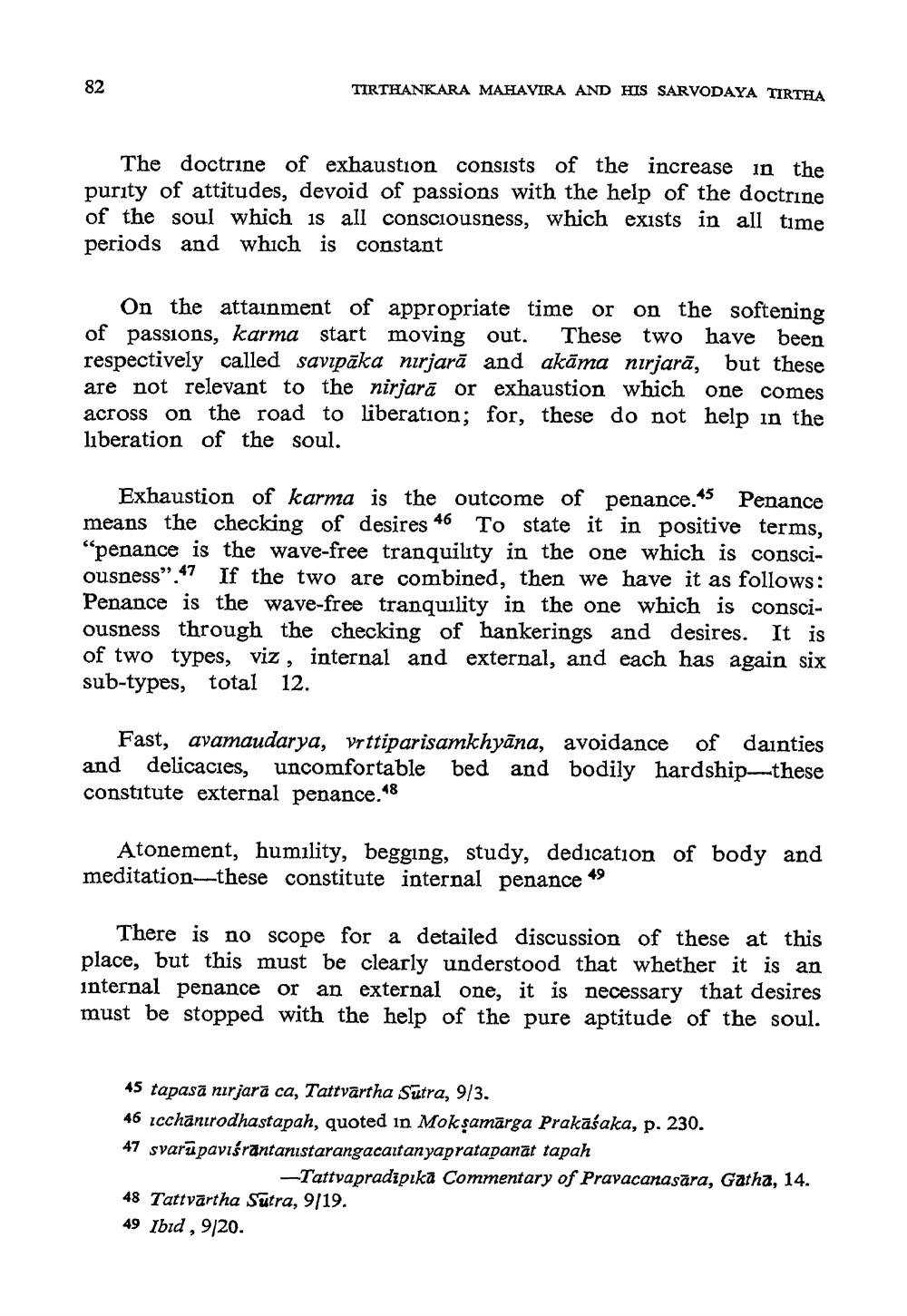________________
82
TIRTHANKARA MAHAVIRA AND HIS SARVODAYA TIRTHA
The doctrine of exhaustion consists of the increase in the purity of attitudes, devoid of passions with the help of the doctrine of the soul which is all consciousness, which exists in all time periods and which is constant
On the attainment of appropriate time or on the softening of passions, karma start moving out. These two have been respectively called savipāka nirjarā and akāma nirjarā, but these are not relevant to the nirjarā or exhaustion which one comes across on the road to liberation; for, these do not help in the liberation of the soul.
Exhaustion of karma is the outcome of penance.5 Penance means the checking of desires 46 To state it in positive terms, "penance is the wave-free tranquility in the one which is consciousness”.47 If the two are combined, then we have it as follows: Penance is the wave-free tranquility in the one which is consciousness through the checking of hankerings and desires. It is of two types, viz , internal and external, and each has again six sub-types, total 12.
Fast, avamaudarya, Vrttiparisamkhyāna, avoidance of dainties and delicacies, uncomfortable bed and bodily hardship-these constitute external penance.18
Atonement, humility, begging, study, dedication of body and meditation these constitute internal penance 49
There is no scope for a detailed discussion of these at this place, but this must be clearly understood that whether it is an internal penance or an external one, it is necessary that desires must be stopped with the help of the pure aptitude of the soul.
45 tapasā nirjara ca, Tattvartha Sutra, 9/3. 46 icchanırodhastapah, quoted in Mokşamārga Prakāśaka, p. 230. 47 svaru pavıśrantanıstarangacaitanyapratapanät tapah
-Tattvapradipika Commentary of Pravacanasāra, Gatha, 14. 48 Tattvārtha Sutra, 9/19. 49 Ibid , 9120.




